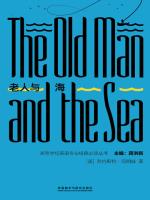Old man and sea
In 1936, Ernest Hemingway published an article in Esquire magazine titled "On Blue Water: Gulf Stream Alphabets," which included the story of an old man who went out to sea, caught a giant marlin, and then unfortunately threw it to a shark. A few years later, in 1951, Hemingway wrote The Old Man and the Sea, an extension of his previous story. Unable to tie a leash, the old man and his boat were towed out of the sea for three days, endured hunger, pain and discomfort, killed the marlin, and had to be eaten by sharks on the way home. His career as a journalist established his signature writing style – simple sentences, catchy descriptions, short and meaningful words. Although the novel is short and simple, it contains many complex and important themes. The story is told from Santiago's point of view, giving the reader insight into his thoughts and feelings throughout his adventure.
The Old Man and the Sea is written by Hemingway, which is an American. It shows us a tragic but great story about an old man. An old man try to kill a strong marlin. In the fight, the old man gradually understand the beauty of marlin. He even started traeting it as his brother. Unfortunately, the sharks ate the marlin. But lukily for the old man, he found his faith: A man can be destroyed but not defeated.
Hemingway's values were subject first, human first, and male first.
If there were meek women attached to men and women with destructive
resistance in the previous works of "The Old Man and the
Sea", women were completely expelled after "The Old Man and
the Sea". Fortunately, the existence of life in "The Old Man
and the Sea" also includes life, such as sea, fish, lions, and
birds, and the scope of ethical exploration has greatly developed. And
my perspective is precisely to view Hemingway's subjective priority
values with bioethics.
Hemingway's dilemma lies in the fact that, on the one hand, he prioritizes personal value and the power of subjective will with subjectivity, and does not hesitate to sacrifice the interests of the natural environment and other life, and on the other hand, he is a person who loves nature and loves life. In "The Old Man and the Sea", on the one hand, the old man aims to kill the big marlin, and the resistance of the big marlin is regarded as an obstacle that the subject needs to overcome to show its own strength, on the other hand, the old man appreciates the beauty of the big marlin, at this time he regards the marlin as another subject, empathizes with its resistance, and even regards it as a brother. What Hemingway shows us is an immortal battle song of human power.




 京公网安备 11010802032529号
京公网安备 11010802032529号